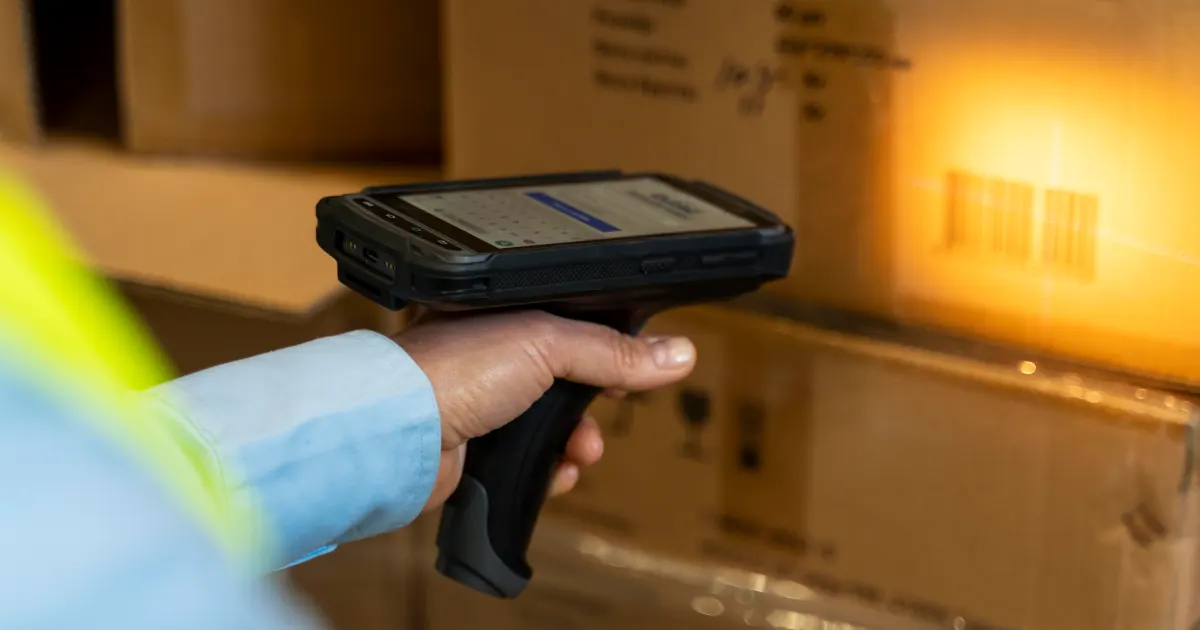Do you know why we need a better system for digital identity in logistics? The logistics industry finds itself at a critical juncture. The need for robust digital identity solutions is in high demand. According to recent studies, the global digital identity market is projected to reach $49.5 billion by 2026, growing at a CAGR of 16.7% from 2021 to 2026. This growth is particularly significant in the logistics sector, where the number of digital identity verification checks is expected to surpass 70 billion in 2024.
As supply chains become increasingly complex and globalized, the risks associated with identity fraud and data breaches have skyrocketed. In fact, data breaches in the supply chain industry have increased by an alarming 37% in recent years. These statistics underscore the urgent need for a more secure and efficient digital identity system in logistics.
EveryCRED is a modern solution built to address the unique challenges of digital identity in the logistics industry. Our platform utilizes blockchain technology and advanced cryptographic encryption to provide secure, tamper-proof digital identities for all participants in the supply chain. By implementing EveryCred, logistics companies can significantly reduce the risk of fraud, streamline operations, and build trust among stakeholders.
The Importance of Digital Identity in Logistics
Digital identity serves as the cornerstone for supply chain security, operational efficiency, and financial integrity. Transactions, communications, and logistics operations are becoming more digital. This makes it essential to verify the identities of people and organizations in the supply chain accurately.
A robust digital identity system in logistics protects sensitive data by allowing access only to authorized personnel. It prevents identity fraud and keeps operations running smoothly. It also secures financial transactions from cyber threats, strengthening security and building trust.
Additionally, digital identity solutions enable real-time data sharing and collaboration among supply chain partners. It improves transparency and traceability of products from origin to consumer. These solutions accelerate cross-border transactions, facilitating seamless global trade.
A digital identity strategy allows logistics companies to meet regulatory requirements for data privacy and security. It reduces cybersecurity risks like supply chain attacks and phishing. It also streamlines supplier onboarding and verification, ensuring compliance and managing risks efficiently.
The Current Challenges in Logistics Digital Identity
The logistics industry faces several challenges in implementing effective digital identity systems despite their clear benefits. Fragmentation, due to the lack of standardized digital identity protocols across the supply chain, leads to inefficiencies and security vulnerabilities. Scalability is another critical issue, as traditional identity management systems struggle to accommodate the growing complexity of supply chains and the increasing volume of participants and transactions.
Balancing the need for supply chain transparency with data protection regulations increases the challenge, drawing a fine line between transparency and privacy. Interoperability complicates the situation further, as the diverse systems and platforms used across the supply chain often cause compatibility issues and data silos. Additionally, the rise of sophisticated cyberattacks forces logistics companies to continually update their digital identity systems to prevent fraud and ensure security.
Blockchain: The Future of Digital Identity in Logistics
Blockchain technology offers a transformative solution to these challenges. By using decentralized, tamper-proof systems, blockchain-based digital identity platforms provide strong security, transparency, and efficiency. Every interaction is recorded on an immutable ledger, ensuring that identity verifications are secure and auditable.
This technology also creates real-time collaboration which allows authorized stakeholders to access identity information instantly. By automating identity verification processes, blockchain minimizes errors and accelerates operations, making it an ideal solution for the logistics industry.
The Benefits of Advanced Digital Identity Systems
Adopting advanced digital identity systems with verifiable credentials that use blockchain brings numerous benefits to logistics companies. Advanced security safeguards sensitive data and prevents unauthorized access. Increased traceability ensures accountability at every step of the supply chain, while operational efficiencies reduce costs and processing times.
Furthermore, digital identity solutions via verifiable credentials simplify compliance with data privacy regulations, helping companies mitigate risks and avoid penalties. By building trust through secure operations, logistics firms can strengthen relationships with their partners and customers alike.
Also, You Can Read More: What Are the Most Common Use Cases for Verifiable Credentials for Logistics Companies?
Use Cases of Digital Identity in Logistics
Digital identity systems powered by blockchain with the help of verifiable credentials & decentralized identity have the potential to transform logistics by addressing key challenges such as security, transparency, and efficiency. Let’s explore some of the practical use cases of how digital identity solutions can enhance the logistics industry:
1. Driver and Employee Authentication
Ensuring that only authorized personnel access logistics facilities or handle shipments is critical for secure logistics operations. Digital identity verification using blockchain-based credentials allows logistics companies to authenticate drivers and employees quickly and securely, reducing the risk of unauthorized access and improving overall logistics security solutions.
2. Streamlining Customs and Cross-Border Compliance
The complexity of cross-border logistics requires robust identity authentication systems to verify documents and comply with regulations. Decentralized identity in logistics enables customs authorities and logistics companies to access verifiable credentials instantly, ensuring compliance with supply chain transparency and digital identity compliance standards. This reduces delays and accelerates global trade processes.
3. Fraud Prevention in High-Value Shipments
Identity fraud poses a significant threat to high-value shipments. Blockchain identity management provides an immutable and tamper-proof system for verifying the identities of handlers, reducing risks associated with logistics fraud. Verifiable credentials ensure that only trusted individuals manage sensitive goods, enhancing logistics fraud prevention efforts.
4. Improving Supply Chain Transparency
A transparent supply chain is vital for tracking products from origin to destination. By integrating digital identity in logistics with IoT devices, stakeholders can access real-time data about the movement and status of goods. This approach improves supply chain transparency, ensuring accountability and traceability throughout the process.
5. Efficient Supplier Onboarding
Onboarding new suppliers often involves time-consuming verification processes. By utilizing blockchain identity management, logistics companies can streamline supplier onboarding, reducing administrative overhead. Verifiable credentials simplify identity authentication in the supply chain, allowing logistics firms to onboard suppliers quickly while ensuring compliance with secure logistics operations protocols.
6. Enhanced Cybersecurity in Digital Identity Systems
The rise of critical cyber threats requires logistics companies to adopt advanced digital identity solutions. Blockchain-based digital identity verification ensures sensitive data is stored securely, mitigating risks such as identity theft and phishing attacks. This strengthens the overall cybersecurity framework in supply chains, safeguarding digital identity in logistics.
7. Simplifying Regulatory Compliance
As data protection regulations become stricter, logistics companies must comply with privacy standards without compromising efficiency. Decentralized identity in logistics simplifies compliance by enabling stakeholders to share only the necessary information through selective disclosure, ensuring digital identity compliance and protecting sensitive data.
Check This: Decentralized Identity in Logistics: The Future of Logistics Industry
How Technology Redefines Digital Identity in Logistics
Digital identity in logistics is set for transformation, driven by innovations like verifiable credentials (VCs) and blockchain technology. Our platform EveryCRED changes how identities are managed, offering decentralized and tamper-proof solutions that ensure security, transparency, and trust.
With EveryCRED, logistics stakeholders can utilize cryptographically secure credentials tied to unique Decentralized Identity (DID) methods. It enables seamless authentication, real-time tracking and self-sovereign identity management. By integrating blockchain, credentials remain immutable and revocable in real-time which improve operational efficiency while aligning with evolving regulatory frameworks. This innovation supports a more secure, efficient, and compliant logistics ecosystem.
Wrapping Up!
The future of the logistics industry depends on secure, efficient and scalable digital identity systems. With our solution EveryCRED, companies can overcome the challenges of traditional identity management, safeguard their operations, and build stronger partnerships.
If you’re a logistics or supply chain manager, compliance officer, or IT leader looking to improve security and efficiency in your supply chain, EveryCRED is here to help. Book a free demo with us today and explore how our modern digital identity solutions can transform your logistics operations. Let’s build a safer, more transparent, and connected logistics ecosystem together!

 13th December, 2024
13th December, 2024 



